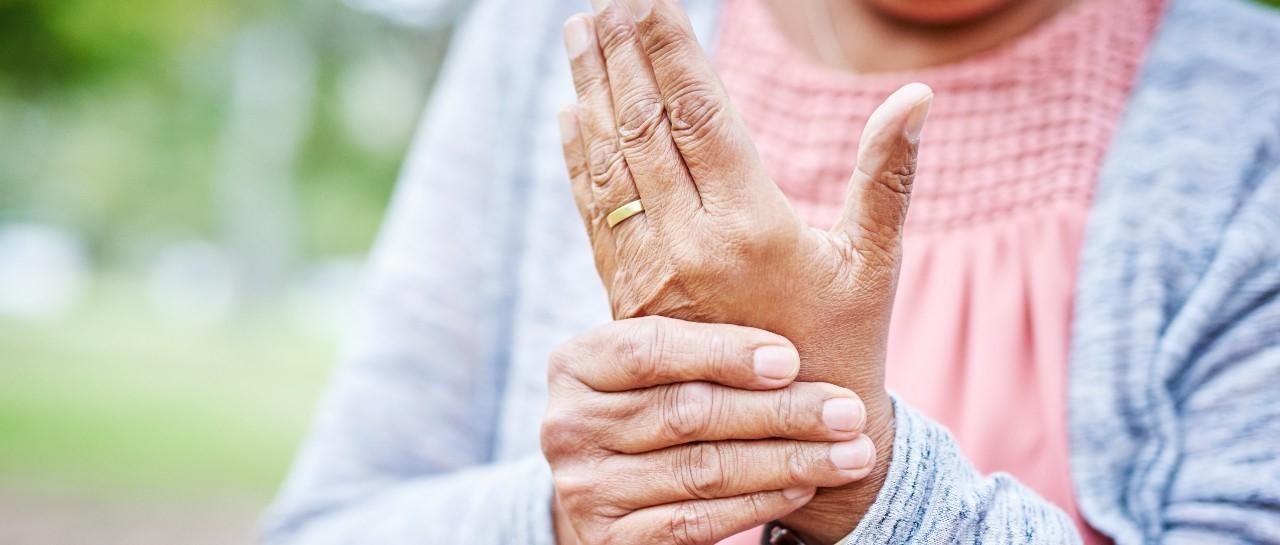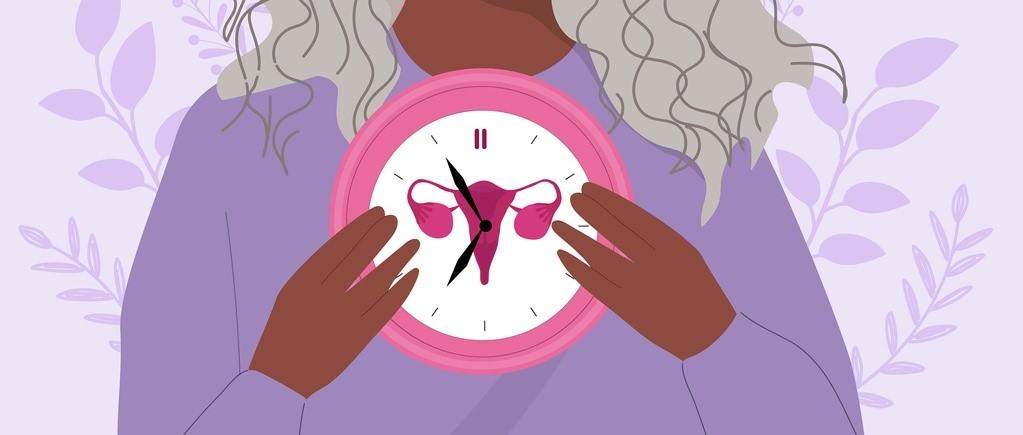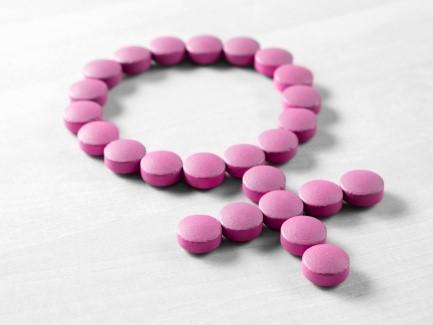
Comment prévenir l'ostéoporose pendant la ménopause ?
Peer reviewed by Dr Sarah Jarvis MBE, FRCGPLast updated by Emily Jane BashforthLast updated 18 Oct 2021
- TéléchargerTélécharger
- Partager
L'ostéoporose est un état de santé qui affaiblit les os et peut entraîner des fractures. La ménopause peut augmenter le risque d'ostéoporose. En effet, la ménopause entraîne une baisse du taux d'œstrogènes (une hormone qui protège les os). Mais l'ostéoporose pendant la ménopause est-elle inévitable et peut-elle être évitée ?
Dans cet article :
Poursuivre la lecture ci-dessous
Qu'est-ce que l'ostéoporose ?
Helen O'Leary is a physiotherapist and director of Complete Pilates. She says that you can have osteoporosis in one area of your body, but not another. Therefore, you will usually have both your hip and lumbar spine assessed and may find that one is osteoporotic and the other not.
Osteoporosis is diagnosed by the results of a DXA scan, which assesses your bone mineral density. DXA scanning may be recommended if you previously had a broken bone from a minor injury, to see if low bone density has contributed to your fracturing. It may also be done if you have an X-ray and the doctor notes that the bones look like they may have reduced density. Another reason to be assessed is if you are in a high risk group due to family history, medical history or drugs that you are taking.
"The important thing to remember with osteoporosis is that the risk of fracture is the important thing as osteoporosis is a silent disease and does not affect you until you break a bone. It is the outcome of fractures which affect quality of life, particularly as we get older," says O'Leary.
Symptômes de l'ostéoporose
Osteoporosis is described as a silent disease, meaning there are no visible symptoms that could help you in identifying the condition. Pain will only be felt if there are breaks in a bone.
However, O’Leary says that, if you have had osteoporosis for some time and have suffered spinal fractures, it is common to lose height as the bones in the back become thinner. This can also affect your posture, causing an increased curve in the spine, as well as leading to back pain.
Poursuivre la lecture ci-dessous
The link between menopause and osteoporosis
It has been shown that up to 20% of bone loss occurs during the menopause, due to the reduction in oestrogen levels. This puts those going through the menopause and after menopause at a higher risk of osteoporosis.
Sélection de patients pour Ménopause et THS

Santé des femmes
Comment la race affecte-t-elle les soins de la ménopause ?
Selon une étude récente, votre expérience de la ménopause pourrait être affectée par votre appartenance ethnique. Nous explorons la relation entre la ménopause et la race, et la manière dont les préjugés raciaux peuvent influer sur l'expérience de soins d'une personne.
par Ellie Broughton

Santé des femmes
Ménopause
La ménopause est le moment où vos ovaires cessent de travailler pour produire un ovule chaque mois - elle survient 12 mois après vos dernières règles. La périménopause est la période pendant laquelle vos règles deviennent moins régulières et on dit que vous êtes en postménopause lorsque vos dernières règles remontent à plus de 12 mois et que cela n'est pas dû à l'arrêt de vos règles pour une autre raison telle que l'utilisation d'un contraceptif qui arrête vos règles.
par le Dr Hayley Willacy, FRCGP
How to prevent osteoporosis in menopause
"We can't necessarily prevent osteoporosis in menopause as it depends on so many different factors. However, the good news is that there are various things we can do to reduce the risk of osteoporosis in menopause and, importantly, reduce the risk of breaking a bone," O’Leary says.
Exercise is recommended for reducing your risk of breaking a bone, but it must be done safely.
Exercise regularly as per the government guidelines of 150 minutes per week.
Exercise should include 2-3 sessions per week that are using weights, body weight or resisted exercise.
Exercise should include balance training to reduce the risk of falls.
The protective element specific to osteoporosis is impact. This means running, jumping, skipping, dancing, hopping, and basically anything that gives impact to the bones can help stimulate bone development.
The specific exercises that are good for you will depend on your diagnosis, your medical history and current exercise profile. This is something that should be advised on by an exercise professional who specialises in osteoporosis, such as a physiotherapist.
Other steps you can take to reduce your risk of bone breakage
Ensure you have a consistent balanced diet with enough calcium. It is generally advised to have 1300 mg per day.
Ensure you have adequate vitamin D.
Reduce your alcohol intake.
HRT and osteoporosis
Taking hormone replacement therapy (HRT) reduces your risk of osteoporosis. If you go through premature menopause - before the age of 40 - your risk of osteoporosis is much higher than average. It is likely that your doctor will recommend that you take HRT until at least the age of 51, which is the average age women go through menopause. They may make the same recommendation if you go through 'ealry menopause' - between the ages of 40 and 44.
HRT can also be extremely helpful in relieving menopausal symptoms - your doctor will discuss the risks and benefits with you.
Poursuivre la lecture ci-dessous
Can you reverse osteoporosis after menopause?
O'Leary says you are unlikely to increase your bone density after menopause without taking bone-building drugs - and even these will often only delay or halt decline in bone density. These are only prescribed on diagnosis of osteoporosis and under the guidance of your GP or rheumatologist.
"Our bone density is built up in puberty and through our life until around the age of 30. At this stage it starts to reduce, with a more rapid decline at menopause. The biggest changes can be made in puberty, which is why it is important to encourage teenage girls to exercise and eat healthily. We then have a bigger deposit in our 'bone bank' so that, as we lose bone density, we hopefully do not fall into the osteoporosis range."
However, it is absolutely possible to reduce your risk of breaking a bone by using the methods above.
When should I contact a doctor for osteoporosis?
"If you break a bone from what seems like a minor injury, it is very important to follow up with a bone density scan to check that osteoporosis is not a factor," O'Leary stresses.
"If you have been taking medications that can cause bone loss, such as prolonged steroids or certain types of cancer drugs, then it will usually be recommended that you have a DXA scan."
In addition, you should consider speaking to your doctor about a DXA scan if you have risk factors for osteoporosis. These include:
Having a body mass index (BMI) under 18.5.
Having gone through the menopause before the age of 45.
A history of your periods stopping for at least 6-12 months before you went through the menopause.
Having a parent or sibling with a history of osteoporosis.
Being very immobile.
Certain medical conditions such as coeliac disease; Crohn's disease; overactive thyroid gland; Cushing's syndrome; chronic kidney disease; type 1 diabetes; chronic liver disease; or rheumatoid arthritis.
Drinking more than four units a day of alcohol, as well as smoking, also increase your risk of osteoporosis.
There are drug treatments available that either build bones or slow the breakdown of bones which will be recommended for you. It is a good idea to see a rheumatologist who specialises in bone health to manage your care.
It is also a good idea to speak to an exercise professional who specialises in bone health to design a bespoke exercise programme for you.
Lastly, a dietician can be really helpful in ensuring you are getting all the nutrients you need to support your bone health and the rest of your body systems through the menopause.
Historique de l'article
Les informations contenues dans cette page ont été évaluées par des cliniciens qualifiés.
18 Oct 2021 | Dernière version

Demandez, partagez, connectez-vous.
Parcourez les discussions, posez des questions et partagez vos expériences sur des centaines de sujets liés à la santé.

Vous ne vous sentez pas bien ?
Évaluez gratuitement vos symptômes en ligne